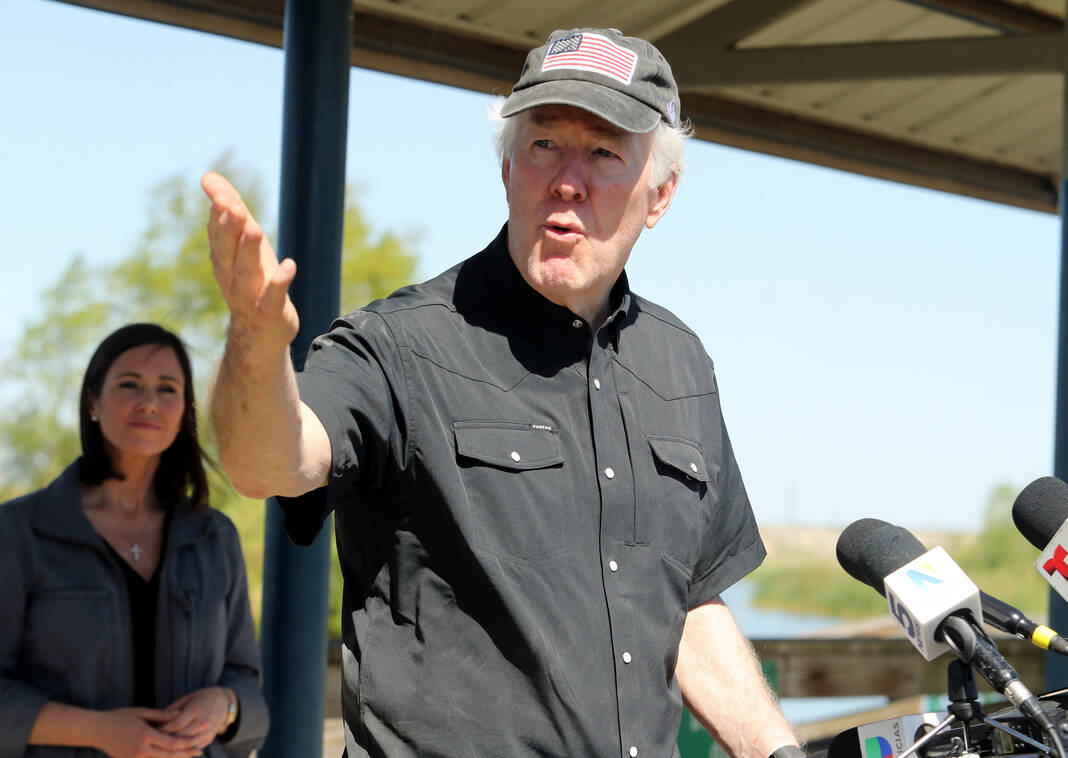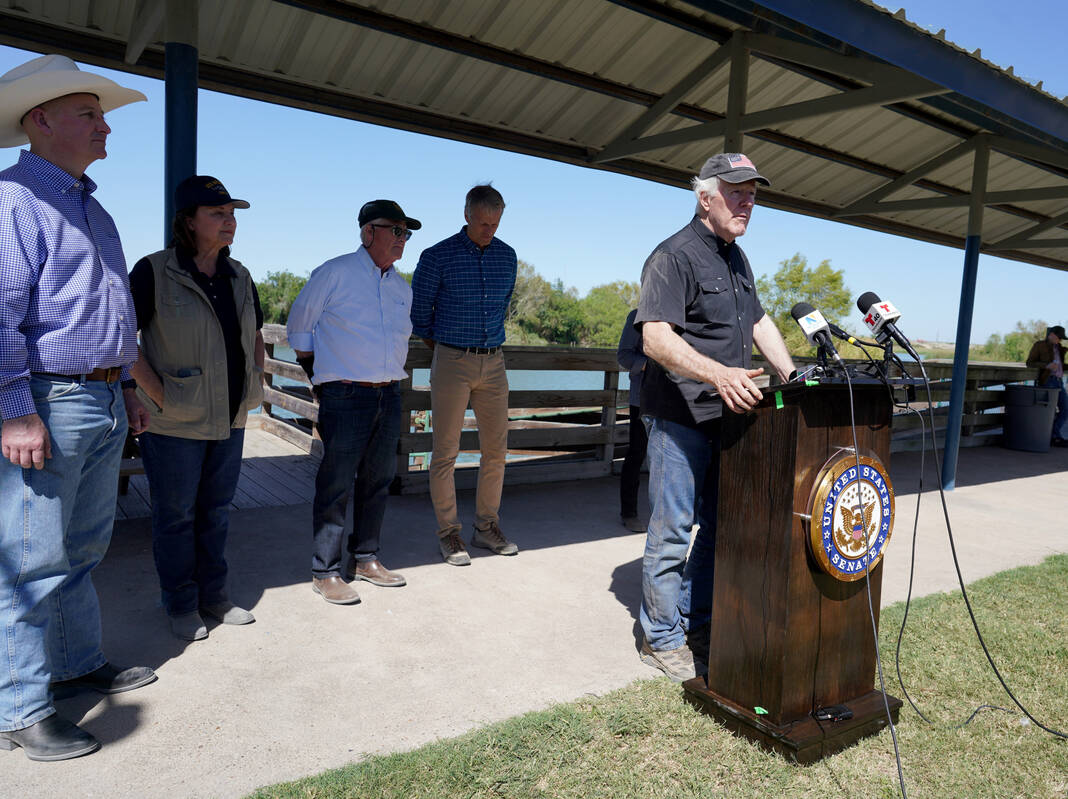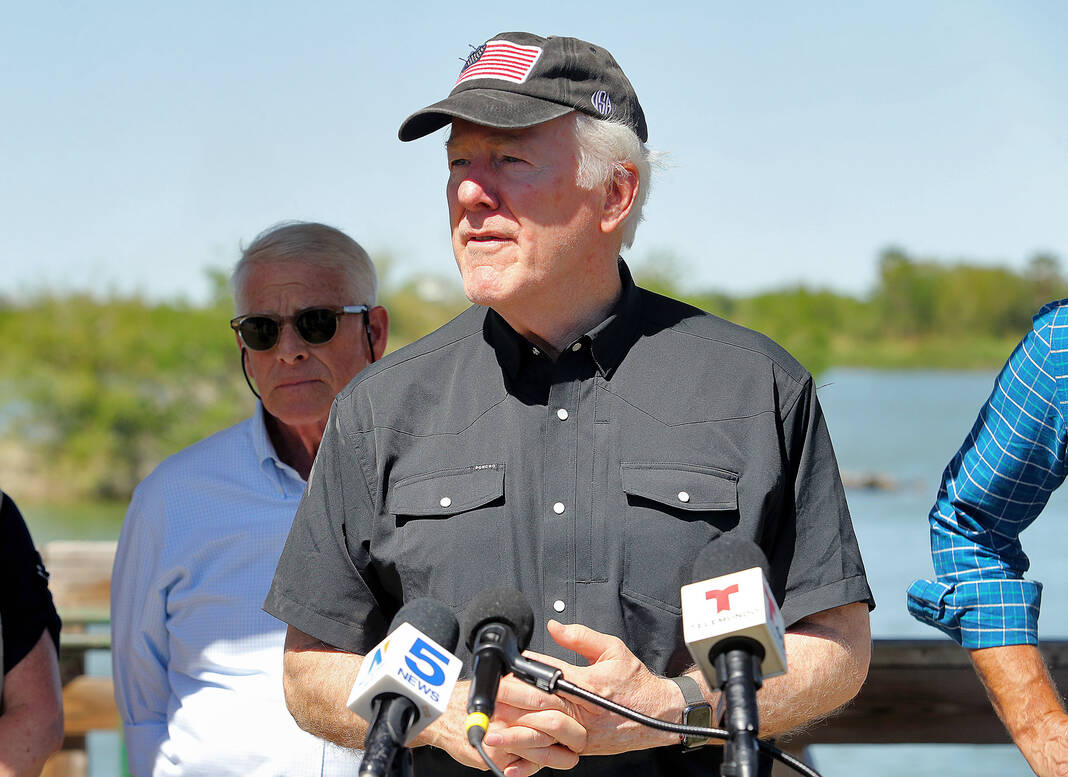
U.S. Sen. John Cornyn speaks about border security at Anzalduas Park in Mission on Friday, March 3, 2023. (Joel Martinez | [email protected])

U.S. Sen. John Cornyn speaks about border security at Anzalduas Park in Mission on Friday, March 3, 2023. (Joel Martinez | [email protected])

U.S. Sen. John Cornyn speaks about border security at Anzalduas Park in Mission on Friday, March 3, 2023. (Joel Martinez | [email protected])
Every state is now a border state because of fentanyl, Sen. John Thune of South Dakota said Friday with the Rio Grande behind him.
U.S. Sen. John Cornyn, the senior GOP senator for Texas, held another news conference at Anzalduas Park in Mission on Friday in what’s become a routine stop for members of Congress and White House officials who want to take a tour of the border. Some to witness what many call a humanitarian crisis, others for border security purposes.
This time, Cornyn brought more Republican senators with him, in line with partisan visits over the last several years, to talk about fentanyl deaths and smuggling.
Those joining Cornyn included Sens. Thune, Roger Wicker, R-Mississippi, Deb Fischer, R-Nebraska, Katie Britt, R-Alabama, and Pete Ricketts, R-Nebraska, all who visited much of the U.S.-Mexico border region in the Rio Grande Valley.
Ahead of Friday’s visit, Cornyn’s office had billed the tour as an opportunity to “survey the current state of the border.”
“The drugs that have come across the border have taken the lives of 180,000 Americans last year alone,” Cornyn said at Anzalduas Park on Friday while standing at a podium, the other senators standing behind him. “We need help from the Biden administration but so far we’ve got nothing from them other than open border policy.”
Thune said Minnehaha County in South Dakota has seen a 130% increase in drug overdoses and was told by the county’s sheriff that 90% of the drugs going there enter through the southern border.
Thune added that 71,000 deaths last year were due to fentanyl and said it’s “a product of what’s happening down here at the border.”
Thune believes the solutions are “straightforward.”
“I mean it’s fairly really simple: enforce the law,” Thune said. “You know, end catch and release, bring back the ‘Remain in Mexico’ policy when it comes to dealing with asylum seekers and finish building the wall.
“It’s really that simple.”
Cornyn didn’t provide much in response to questions about why Democrats didn’t join him, only mentioning past bipartisan visits to other regions.
“We’re here because we care and we’re all willing to pitch in to do our part, but in the end it will take a bipartisan resolve,” Cornyn added.
The tour also came after U.S. Customs and Border Protection recently reported the greatest drop in border encounters in more than three years, which followed the policy change that penalized illegal crossing late last year.
All southwest border encounters dropped from 252,000 in December to 156,000 in January.

